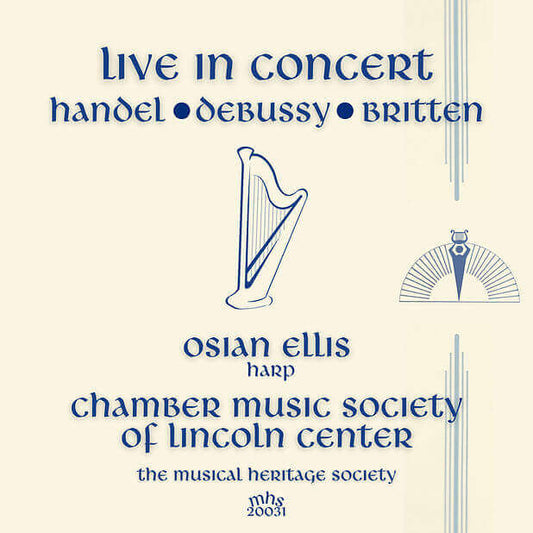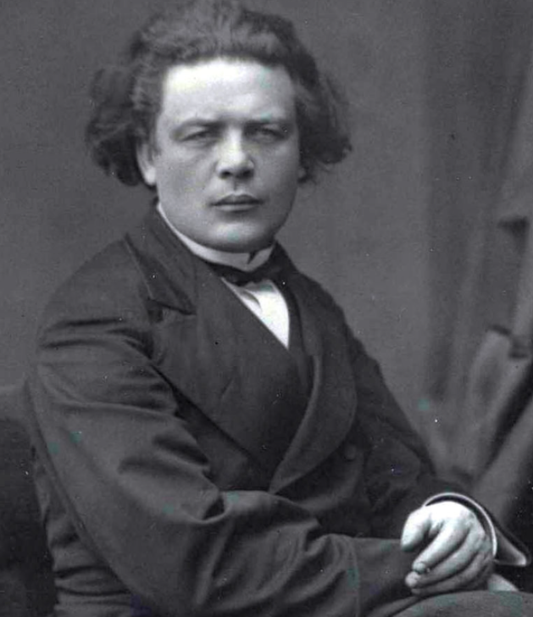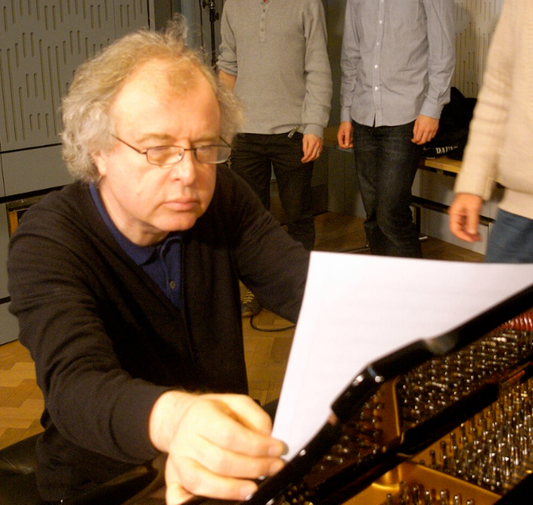Collection: BENJAMIN BRITTEN (1913-1976)
Edward Benjamin Britten (1913-1976) stands as arguably the most significant British composer of the 20th century, a towering figure who revitalized English opera and created a distinctive, deeply personal musical language that resonated both domestically and internationally. Born in Lowestoft, Suffolk, on St. Cecilia's Day (the patron saint of music), Britten displayed prodigious musical talent from an exceptionally early age, composing prolifically throughout his childhood. His mother, a keen amateur musician, nurtured his gifts, and he later studied composition formally, first with Frank Bridge, whose rigorous mentorship proved formative, and subsequently at the Royal College of Music in London.
Britten’s early professional years saw him composing innovative scores for documentaries produced by the GPO Film Unit, honing his skill for evocative atmosphere and dramatic timing. A crucial turning point came in 1937 with his meeting of the tenor Peter Pears. Pears became Britten's lifelong personal partner and artistic muse, his unique voice inspiring many of the composer's greatest vocal works. Facing the outbreak of World War II, Britten and Pears, both committed pacifists, initially travelled to the United States, where Britten composed works like the Sinfonia da Requiem and his first opera, Paul Bunyan. However, a growing sense of homesickness, particularly for the Suffolk coast, prompted their return to England in 1942, where they registered as conscientious objectors.
The premiere of his opera Peter Grimes at Sadler's Wells in 1945 marked a watershed moment, not just for Britten but for British music. Based on George Crabbe's poem about a tormented Suffolk fisherman ostracized by his community, the opera was an immediate and stunning success. Its powerful score, gripping drama, and profound psychological insight demonstrated that opera in English could achieve international stature, effectively ending a long fallow period for the genre in Britain. The sea, a constant presence in Britten's Suffolk upbringing, became a recurring and potent symbol throughout his work, often representing both beauty and immense, unforgiving power.
Following Peter Grimes, Britten, Pears, and librettist/producer Eric Crozier founded the Aldeburgh Festival in their coastal Suffolk town in 1948. This intimate yet internationally renowned festival became the primary venue for premiering many of Britten's subsequent works, fostering a unique community of artists and providing a creative hub tailored to his needs. His operatic output continued prolifically with masterpieces like Billy Budd, The Turn of the Screw, A Midsummer Night's Dream, and his final opera, Death in Venice.
Britten's musical style is characterized by its clarity, technical brilliance, and emotional directness. While rooted in tonality, his harmonic language is often complex and innovative, incorporating dissonance and unique orchestral colours to achieve specific dramatic or psychological effects. He possessed an unparalleled gift for setting the English language, capturing its rhythms and nuances with sensitivity and imagination. Influenced by composers as diverse as Purcell, Mahler, and Stravinsky, he forged a sound entirely his own. Recurring themes in his work include the loss of innocence, the conflict between the individual and society (often focusing on the 'outsider' figure), and his deeply held pacifism, most powerfully expressed in the monumental War Requiem (1962), commissioned for the consecration of the rebuilt Coventry Cathedral. Other significant works include the popular Young Person's Guide to the Orchestra, the Serenade for Tenor, Horn and Strings, and numerous song cycles and choral pieces.
Despite declining health in his later years, Britten continued composing. He received numerous honours, including the Order of Merit and, in 1976, became the first composer elevated to a life peerage, taking the title Lord Britten of Aldeburgh. He died later that year in Aldeburgh, leaving behind a vast and enduring legacy. Benjamin Britten not only restored British music to international prominence but created a body of work exceptional for its technical mastery, emotional depth, and profound humanity, securing his place as one of the essential composers of the modern era.







